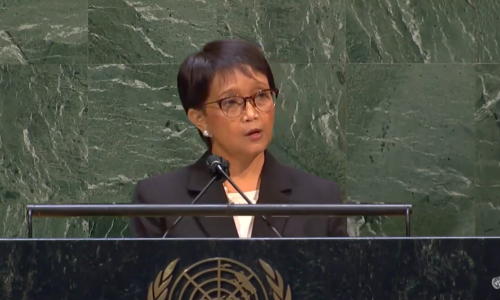The Philippines and the United States are ramping up their military cooperation by doubling the number of troops in the joint exercises. This measure – which is done days after a spy balloon was spotted in the US sky – would give the superpower country a potential advantage in its efforts to thwart China’s attempt to take control of Taiwan.
Col. Michael Logico, Director of the Philippines Military’s Joint and Combined Training Center, said that 16,000 forces from both countries would participate in Balikatan, their main annual bilateral military exercise, in 2023. This marks a significant increase from the previous years.
“We are going to do a full battle test for operating together, including in Northern Luzon,” Logico said in an interview with the Financial Times. “This area is near the country’s sea border with Taiwan and the joint exercises will help prepare the forces for any potential conflict in the region.”
The deal signifies the first time in 30 years that the US will have such a large military presence in the Philippines, the New York Times reported. Among the US’ five treaty allies in Asia, the Philippines and Japan are closest geographically to Taiwan, with the Philippines’ northernmost island of Itbayat just 93 miles away.
Chinese spy balloon provocation
The US and the Philippines military cooperation deal took place shortly after a Chinese spy balloon was first spotted floating across the US continent, causing hysteria among the public.
From January 28 to February 4, 2023, a large, white high-altitude balloon operated by China floated across North American airspace. The balloon passed over Alaska, western Canada and the US. Its presence led to allegations that it was a Chinese spy balloon and sparked concerns about the potential espionage and security threats.
The US public and media speculated that the balloon was collecting sensitive information, such as intelligence on military installations, communication networks and other sensitive infrastructure. A US jet fighter finally shot down the balloon over the Atlantic Ocean on February 4, 2023.
Meanwhile, Colombia’s air defense detected another China’s balloons floating over Latin America and the Caribbean just a few days after the previous detection. China has insisted that both balloons were for civilian purposes and had accidentally deviated from their planned course. While the Colombian Air Force stated that the object did not pose a threat to national security, there were still concerns about China’s intentions.
The Chinese government was quick to address the incident, saying that the balloon was strictly for meteorological research and was not equipped with any spying or surveillance equipment. According to the Chinese authorities, the balloon accidentally drifted into US airspace and its presence was in compliance with international laws and regulations.
China Daily said in its editorial that “China chooses not to let these divert its attention from the bigger picture of bilateral relations, nor the frequent, if not regular, provocative transits and overflights in the South China Sea, the Taiwan Straits and the East China Sea by the US Navy and Air Force, which the US disingenuously portrays as ‘freedom of navigation’ operations”.
However, the US intelligence insisted that China has been sending balloons over military sites worldwide as part of a global surveillance program.
South China Sea and Indonesia
The US-China rift over the balloon and the subsequent increase in military cooperation between the US and the Philippines could have significant implications for the South China Sea regions, particularly for Indonesia’s interests.
The increase in the US-Philippines military cooperation could potentially lead to add military presence in the region, which could escalate tensions and heighten security concerns. This could pose a threat to regional stability and potentially undermine Indonesia’s interests in the South China Sea.
On the other hand, the two countries’ increased military cooperation could also serve as a deterrent to potential adversaries in the region, including China. This could provide some degree of security and stability in the region and potentially protect Indonesia’s interests.
In conclusion, the recent developments involving the Chinese balloon and the subsequent increase in military cooperation between the US and Philippines could have a complex and potentially conflicting impact in South China Sea and Indonesia’s interests in the region. As such, it is important for all parties to continue to engage in dialogue and diplomatic efforts to maintain stability and ensure the protection of regional interests.








